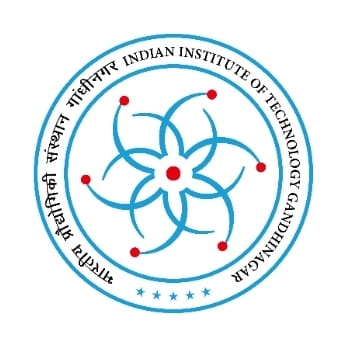Gandhinagar, Gujarat, Feb 05, The Indian Institute of Technology Gandhinagar (IITGN) hosted the international ‘EAGE Workshop on Carbon Capture and Storage (CCS) in Basalts’ on February 3-4, 2025, at its campus.
According to IITGN, The Indian Institute of Technology Bombay (IITB), The Department of Science and Technology, Government of India, and the Oil and Natural Gas Corporation Limited (ONGC) served as the Co-Host Sponsor, Gold Sponsor, and Lanyard Sponsor of this event, respectively.
The workshop brought together 70 eminent delegates from 35 organisations including various government agencies, industry leaders, and academicians from several countries across the globe, to discuss innovative approaches for commercial subsurface carbon storage in basalt formations.
While welcoming the delegates to this important conference, Prof Rajat Moona, Director, IITGN, said, “There was a significant agreement in 2015 that highlighted the global concern about managing carbon dioxide as a major greenhouse gas to keep the temperature rise below the critical threshold 2°C. That landmark accord demonstrated strong global political will and placed the onus on scientists to find effective solutions. Today, I am pleased that we have gathered to discuss carbon capture and storage (CCS) in basalts, a crucial step in addressing this global challenge”.
Following the IITGN Director’s welcome remarks, the chief guest, Dr V K Saraswat, Hon’ble Member, NITI Aayog, Government of India, gave a detailed account on the Indian CCU and CCS activities. “Until a couple of years ago, there was little discussion about CCS utilisation in India—neither in academic institutions nor in industry. It remained largely an academic topic studied by students in universities and colleges. However, in 2022, NITI Aayog took the initiative to explore CCS as a viable pathway. We soon realised that carbon capture and storage (CCS) could play a significant role in shaping India’s energy strategy and addressing our sustainability challenges” noted Dr Saraswat. He further provided a complete picture of the full chain of CCU and CCS activities from capture to transport to utilization to storage. Dr. Saraswat’s remarks set the tone for rest of the conference, and provided the push to the academia and industry to brainstorm the topic at hand – CCS in basalts in India.
Dr Saraswat’s talk was followed by Dr Sigurour Reynir Gislason, University of Iceland, who briefed the audience about “Carbon Mineralisation via the CarbFixMethos”. Dr. Gislason is the pioneer and one the few scientists to have been part of several pilot as well as commercial projects involving subsurface carbon sequestration in basalts.
Following the remarks by Dr Saraswat (Hon’ble Member, NITI Aayog) and Dr Gislason, the stage was now set to have a detailed panel discussion with different stakeholders to discuss the CCS Policy and Deployment in India. The panel comprised of Dr Vijay Kumar Saraswat, Hon’ble Member, NITI Aayog, Government of India, Dr Neeraj Sinha, Reliance Industries Ltd, Dr Sigurður Reynir Gíslason, Research Professor, Geochemistry, University of Iceland, and Dr Kaustav Nag, Director General of Hydrocarbons, who deliberated on the topic: “Accelerating CCS in India: R&D, Policy and Deployment”. The session was moderated by Prof Vikram Vishal, IIT Bombay. The second half of first day had several international and Indian scholars from industry and academia who discussed various aspects of CCS in Basalts in India and abroad.
The second day of the workshop included keynote addresses by Prof Raymond Duraiswami, Savitribai Phule Pune University, Prof Ralf Haese, The University of Melbourne, and Prof Eric H Oelkers, University of Iceland who spoke on “The Deccan Basalts: Lava Typologies, Architecture, and Their CCS Potential”, “Regional CO2 Emissions and CO2 Storage Potential in the Deccan Trap Volcanic Province” and “Rapid CO2 Mineralization by its Co-Injection with Recirculating Water in Subsurface at the Jizan CBS Pilot Project” respectively. Besides these vital lectures, day 2 entailed a varied range of poster presentations as well.
Underlining the importance of this workshop, Prof Pankaj Khanna, Assistant Professor, Earth Sciences, IITGN, remarked “This workshop has brought together policymakers, industry, and academia to discuss one of the solutions to reduce Carbon Dioxide (CO2) future emissions by storing them in basaltic rocks. We have received tremendous encouragement and support from the government, who have enabled us to hold this niche meeting which might open up new avenues for commercial-scale carbon removal.”
This event was co-chaired by Prof. Pankaj Khanna, IIT Gandhinagar, Dr. Achyuta Ayan Mishra, Reliance, and Prof. Vikram Vishal, IIT Bombay and hosted at IIT Gandhinagar Campus.

